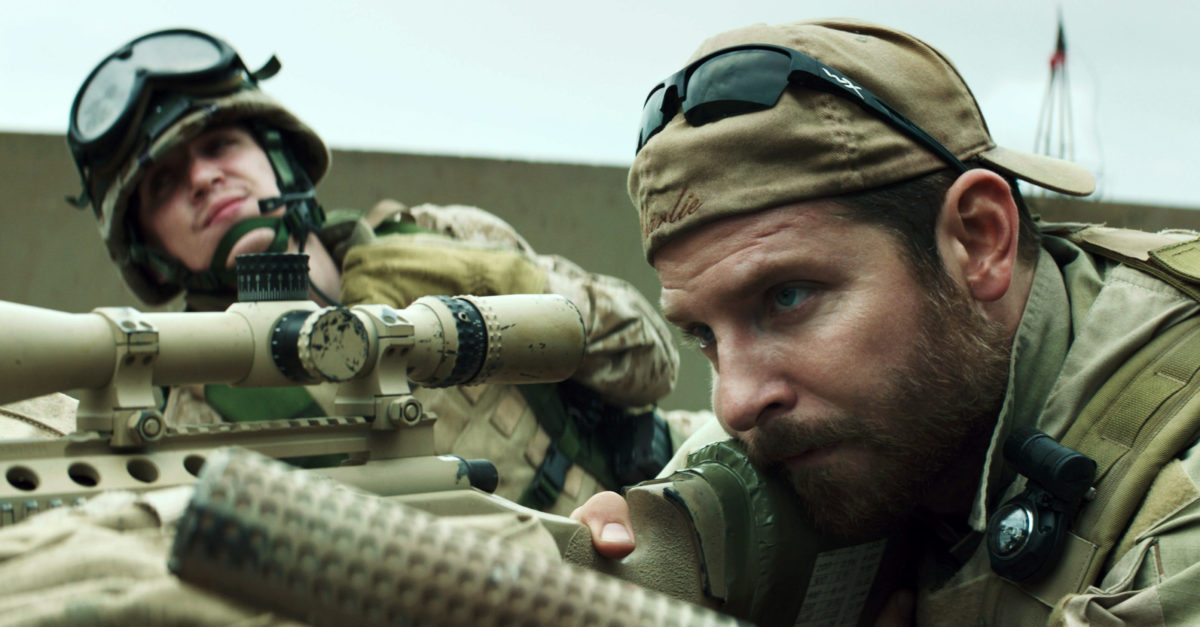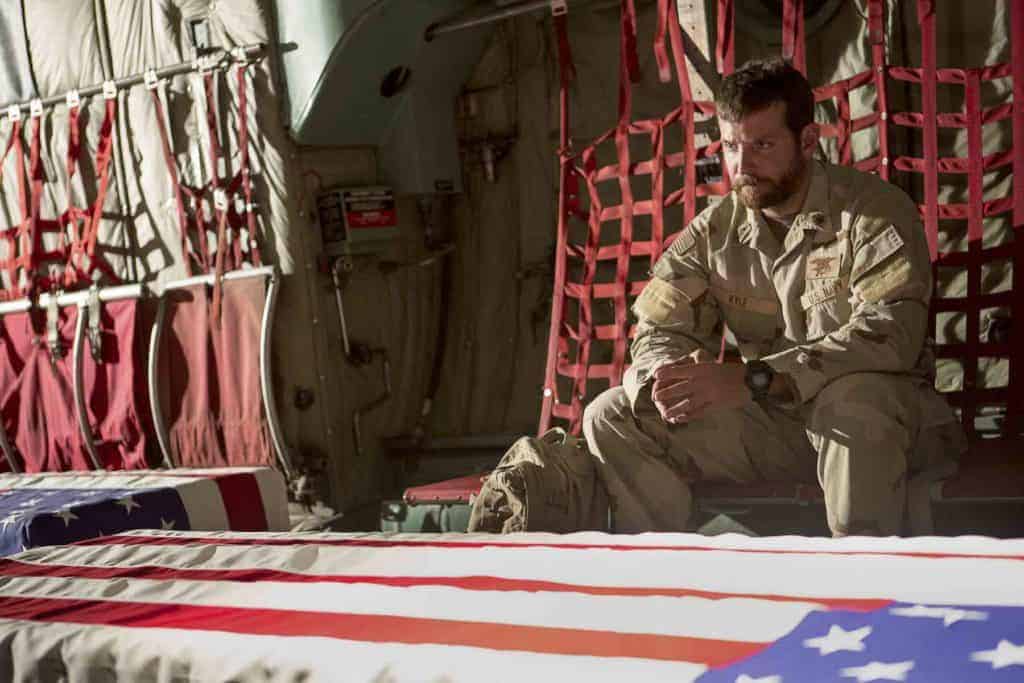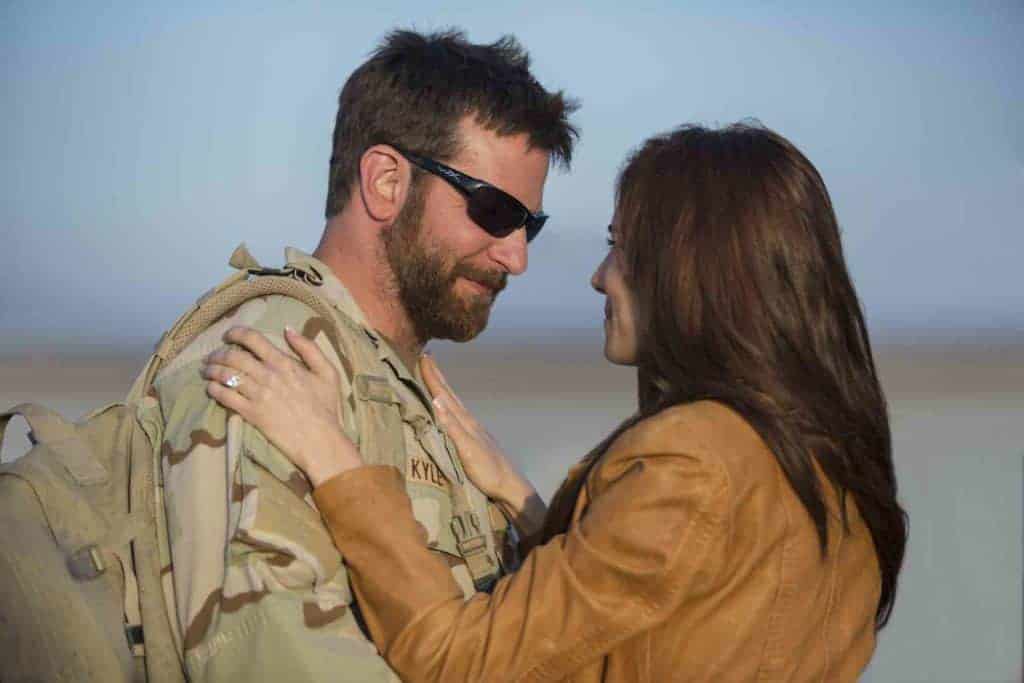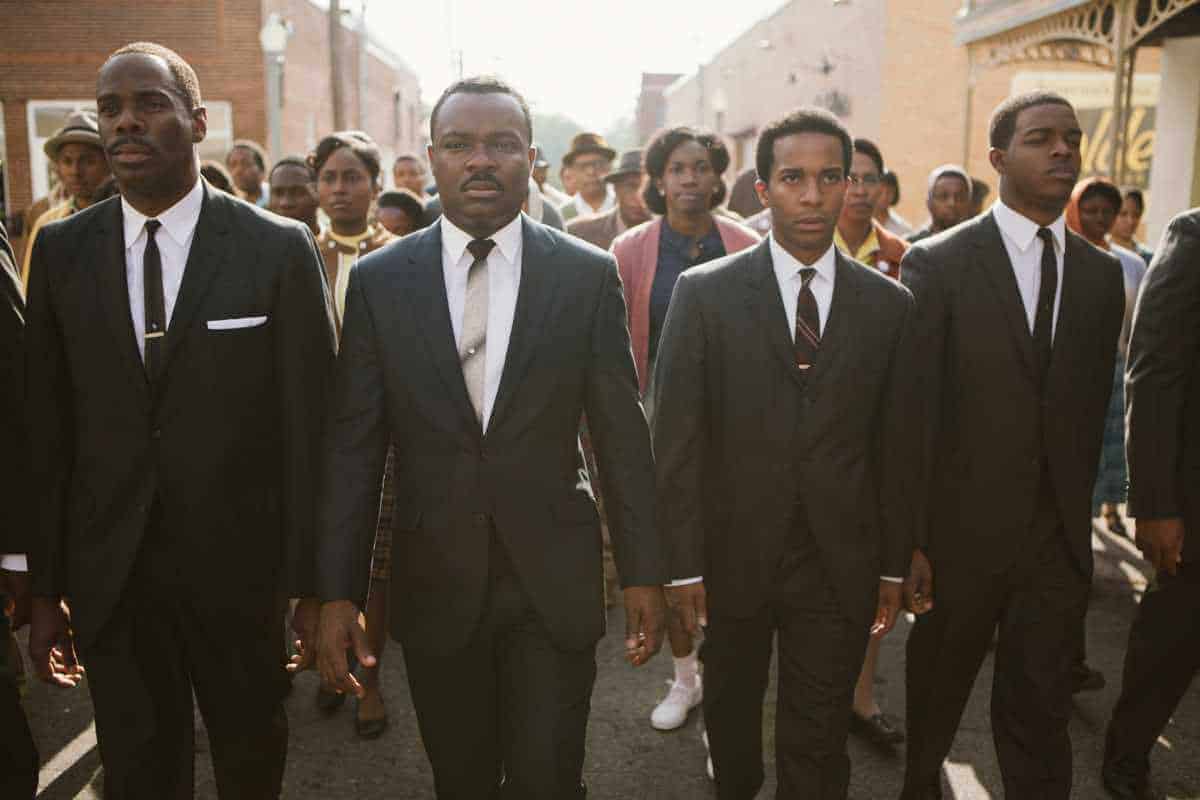Clint Eastwood’s American Sniper is an intelligent, probing character study of a man torn between his duty as the US Military’s deadliest sniper in history, and his life at home.

For Chris Kyle (Bradley Cooper), in Clint Eastwood’s tense and thoughtful American Sniper, becoming the US Military’s deadliest sniper in history is as much an honour as it is a curse. Knowing he’s such a superlative marksman means that every minute he’s at home in the US, instead of on the battlefield in Iraq, is a minute where he could have been there to keep his fellow soldiers safe — more reliably than anyone else could have — but wasn’t. It weighs on him deeply, as he keeps returning on more and more tours, delaying starting and dealing with his ‘real’ life back home in the US, with his wife and children. This deep responsibility he feels for his fellow soldiers is also part of why he’s in such denial about his PTSD, which is clearly causing him problems.
Kyle never intended to be in the military: he wanted more than anything to be in the rodeo. His fiercely religious upbringing left him with clear ideas about right and wrong and the need to defend others who can’t defend themselves. But you never get the sense that devoutness is what’s driving him; he carries a bible but never studies it. That he decides to join the army when he sees the American embassy in Kenya bombed on television, and Clint Eastwood pushes in on his devastated face — it’s so obvious I couldn’t help but giggle — suggests that patriotism is what pushed him into the army. But what made him stay was finding something he was good at, something where his presence was essential, where he could help others.

As we watch Kyle go through brutal and rigorous training — since he joined the Navy S.E.A.L.s, the hardcore division of the military — Eastwood shoots it all with a certain objectivity. We’re watching Kyle become disciplined and grow up, but we’re also watching what seems like cruelty. Yet by the midpoint of the film, it’s clear that Kyle got something even more valuable out of it: good training. The regular soldiers don’t have to go through the intense preparation that Kyle did, which makes it easier for them to get picked off in battle. It also means Kyle feels ever more responsibility for protecting them because he’s more capable.
Eastwood is constantly questioning what we think about Kyle, who he is, and what his service means, although that’s something Kyle doesn’t engage in much. He’s first presented as a good ‘ol boy, without much capability for reflection or thought; he’s floundering and womanizing when he finds purpose in the military. He’s not outrageously charismatic, but he does have a simple charm and wit that wins over his wife Taya (Sienna Miller) when they meet and banter at a bar. He’s capable of tenderness, and he thrives in a partnership with her, which grounds him. He’s not erudite, but he’s also not stupid: he’s capable of intense focus, and it’s his intelligence that lets him stay one step ahead of the enemy. He’s attuned to the details, whether it’s a sound that gives away information in battle, or the scars on someone he meets at war, which reveal more than the average person would notice. Yes, he has great aim, but the reason he becomes such an important leader in his unit is his ability to think more clearly and critically than others, when it comes to the battle.

It’s his work on the battlefield that is so crucial to his identity, and that becomes a problem when he comes home and has difficulty engaging with his family. In one scene, Eastwood trains his camera on a still Kyle, sitting in front of his television, with a soundtrack of loud battle noises. As the camera circles around an absorbed Kyle, we discover the television isn’t on. The horrors are in his head. It means he’s not fully present for his wife and children; their precious time together gets more and more tense as he insists on putting the soldiers and war first, leaving his wife to pick up his slack and struggle.
Even though Eastwood gives Kyle’s trauma and its effect on his family its due, and shows the difficulties of being a military wife — in one call home, Taya lays out her worries and concerns, asking him to come home, and he replies “this is not how a call home is supposed to go” — this is not his wife’s or his family’s story. It’s telling that we never spend time on the homefront, watching Taya struggle to get by solo while pregnant; even though we see Kyle drive her to the hospital, the pain and battle of childbirth are told entirely offscreen. Eastwood ensures we see the world through Kyle’s eyes.
Eastwood is, by omission, drawing attention to the things Kyle is missing out on, from an appreciation of his wife’s own strength and drive, to the joys of family. It’s the price he pays to serve his country. That some of the film’s most touching scenes are between Kyle and his children — as he spends time with them, plays with them, and shows affection — further emphasizes this. But it also suggests that being a family man might also be affecting his work: late in the film, we watch his compassion for a young boy with a weapon in hand, who is his son’s age, come dangerously close to interfering with his ability to protect his fellow soldiers. He’s hesitating, hoping the boy will drop the weapon and spare him the kill. Eastwood gets your blood pumping, cutting between the boy, the gun, the trigger, and Kyle’s torn allegiances. That kind of desire to protect the innocent is exactly what got almost everyone killed in last year’s Lone Survivor.
To call American Sniper a pro-war movie or an anti-war movie is to miss the point: all war movies are both. Like Shakespeare’s Henry V, this is a going-to-war story that celebrates courage and skill, but interrogates the cost of both. On the homefront, Kyle frequently meets people whom he doesn’t know but whose lives were saved by him, including one amputee (Jonathan Groff), full of gratitude. It’s convenient when Kyle can see his enemy as pure evil, but the film doesn’t let the audience make that same mistake: Kyle’s biggest nemesis is an Olympic champion with a rifle, his double on the other side. Yet we also see that Kyle’s kills weigh on him, as much as not killing and not saving his fellow soldiers do. A soldier’s life isn’t easy, nor is the life of his family. In American Sniper, Eastwood and Bradley Cooper, in his best performance to date, lay bare all these complexities through an intelligent, probing character study of Chris Kyle, a man who may seem simple-minded or sheltered at first, but whose story is anything but simple.

